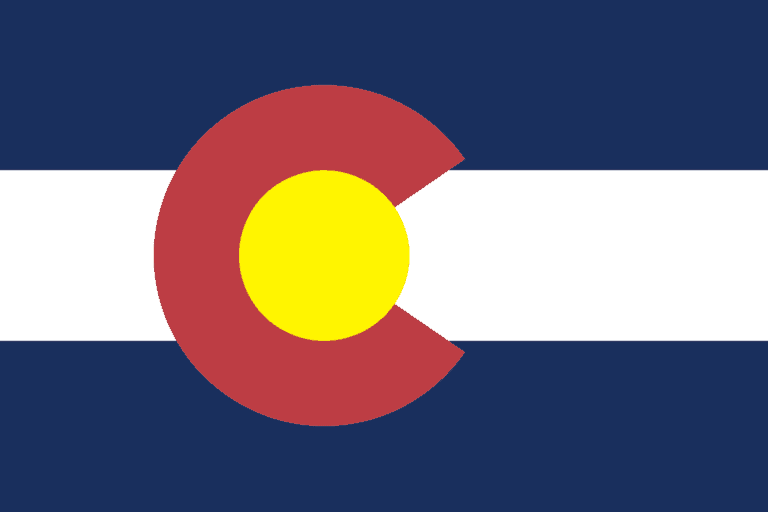As a homesteader or prepper, you want to be prepared for anything and everything the world can throw at you. One situation that you dread is that you may run out of supplies – especially water.

Now, one of the ways to get around this issue is to collect rainwater for later use.
Unfortunately, not all states allow collecting rainwater and there are sometimes very strict limitations on collecting rainwater in places where it is allowed.
So where does Colorado fall on this scale? Is it legal or illegal to collect rainwater in Colorado?
No, it isn’t illegal to collect rainwater in Colorado, but you must have a well permit that allows for domestic use of collected water.
There must also be no municipal/district water supply readily available, and you may only use the collected water for specified purposes. The collected water may not exceed a capacity of 110 gallons.
Collecting rainwater only became legal in Colorado in 2016, so here’s more on that in what follows…
The Laws about Collecting Rainwater in Colorado
Now that we’ve looked at the water rights part of collecting rainwater, let’s look at the actual laws around collecting rainwater.
Senate Bill 09-080
Bill 09-080 was passed in 2009 and allows you to collect rainwater if:
- The property is residential in nature.
- The landowner/resident uses a well or is allowed by a permit to have a well
- The well permit allows for domestic uses for collected rainwater
- There is no municipal or district water supply available
- The water is collected ONLY from the roof
- The water is used ONLY for what is listed on the well permit
House Bill 09-1129
This bill allows for the use of collected rainwater for new real estate projects. The water conservation board has a set of criteria for the selection of a project.
Harvesting rainwater must be a feasible option. The project in question must also have good landscaping and irrigation practices in place.
If a project is approved by the board, it is allowed to harvest rainwater runoff equal to what the vegetation was absorbing before the development started.
37-96.5-103 – Colorado’s Revised Statutes
The state of Colorado revised its statutes on rainwater harvesting in 2016 – allowing for the collection of rainwater with a maximum capacity of 110 gallons.
You are allowed two rain barrels for a single-family unit/residence and four barrels for a multi-unit/family residence.
Now, that doesn’t mean you can have more water. The maximum capacity is still 110 gallons; the combined maximum amount cannot exceed 110 gallons.
The 110 Gallon Limitation
Up until 2016, collecting rainwater was illegal in Colorado. This was until state legislators voted to allow people to store rainwater that came off their roofs – with a limited capacity of 110 gallons to a household.
The captured water may NOT be used indoors or for drinking and must be used for watering grass, plants, and gardens – unless you’ve met a specific set of requirements and gotten a specific type of permit under the collection law.
Water Rights in Colorado
Colorado has a very…interesting way of doing things. They have what’s called a priority system in place – basically put, first come, first serve.
The water is shared, but if you are first in line, you get first dibs on the water. This system dates back to the California gold rush (1848 – 1855).
The miners/panhandlers would if they could afford them, use high-pressure hoses to essentially blast portions of the hillside – the runoff of which would flow through boxes that would capture any gold fragments that came loose.
This method was…not the greatest. It was incredibly harmful to the environment, and it put immense strain on local water supplies – not a good thing if you lived in a very dry area (i.e. California).
This was because the miners would siphon off water from local water supplies.
To keep everything fair, the miners and panhandlers would follow an old portioning rule where if you were the first one to dig a canal on a spot, you got the water in that spot.
After a while, the western states began to monitor and regulate this practice. They handed out permits to water in the specific quantities and order in which people came to collect them.
If you were third on the list, you were the third person to get a permit for a specific quantity.
All this resulted in a system that monitors who uses the water, when they use it, and for what purpose. This system also dictates what uses are allowed.
The strict regulation relates back to the 120-year-old law that basically says that you may be depriving someone else of their water (because the rainwater may flow into someone else’s water supply).
Today the concept/practice of prior appropriation is looked down on, but the scarcity of water meant that it had to be measured out as residents couldn’t rely on streams and such to provide their water.
The water had to be brought in from elsewhere and that meant that they needed a system in place to make sure the water would be used productively (i.e. for agriculture).
The use/collection of rainwater is closely monitored as the climate in Colorado is very arid meaning they have very little rainfall so every drop counts.
It’s also monitored to ensure that those who were first in line aren’t, for lack of a better word, cheated out of their use of water.
Pros
- Extra water for your garden
- Less strain on the household pump system
- Promotes conservation
Cons
The cons of collecting rainwater in Colorado include:
- Water collection and use is strictly monitored
- Labor intensive
- Not always a reliable method of doing things
- Possible contamination
Common Misconceptions
One of the biggest misconceptions about collecting rainwater is that it’s an easy thing to do.
You need to be able to install and maintain the system and make sure that it’s been emptied and disconnected at the end of the season. The system also has to be winterized to survive the harsh, cold temperatures.
Another common misconception is that 110 gallons is a lot of water and, unfortunately, it isn’t. If you’re not careful, you’ll very quickly use it up.
Is It Worthwhile?
Despite all the drawbacks associated with collecting rainwater in Colorado, it’s definitely worth doing.
Read also: Rainwater Collection Laws in the US – An Overview
It’s a good way to lower your utility bill and teach your kids about water conservation. You’ll also become more aware of how much water you’re using in a day and regulate that a bit more closely.

Greg spent much of his younger years camping and hiking. Greg grew up on a small farm with lots of livestock such as cows, horses and chickens. He’s good with a bow and arrow, is a huge knife enthusiast, and has a blackbelt in Taekwondo.
